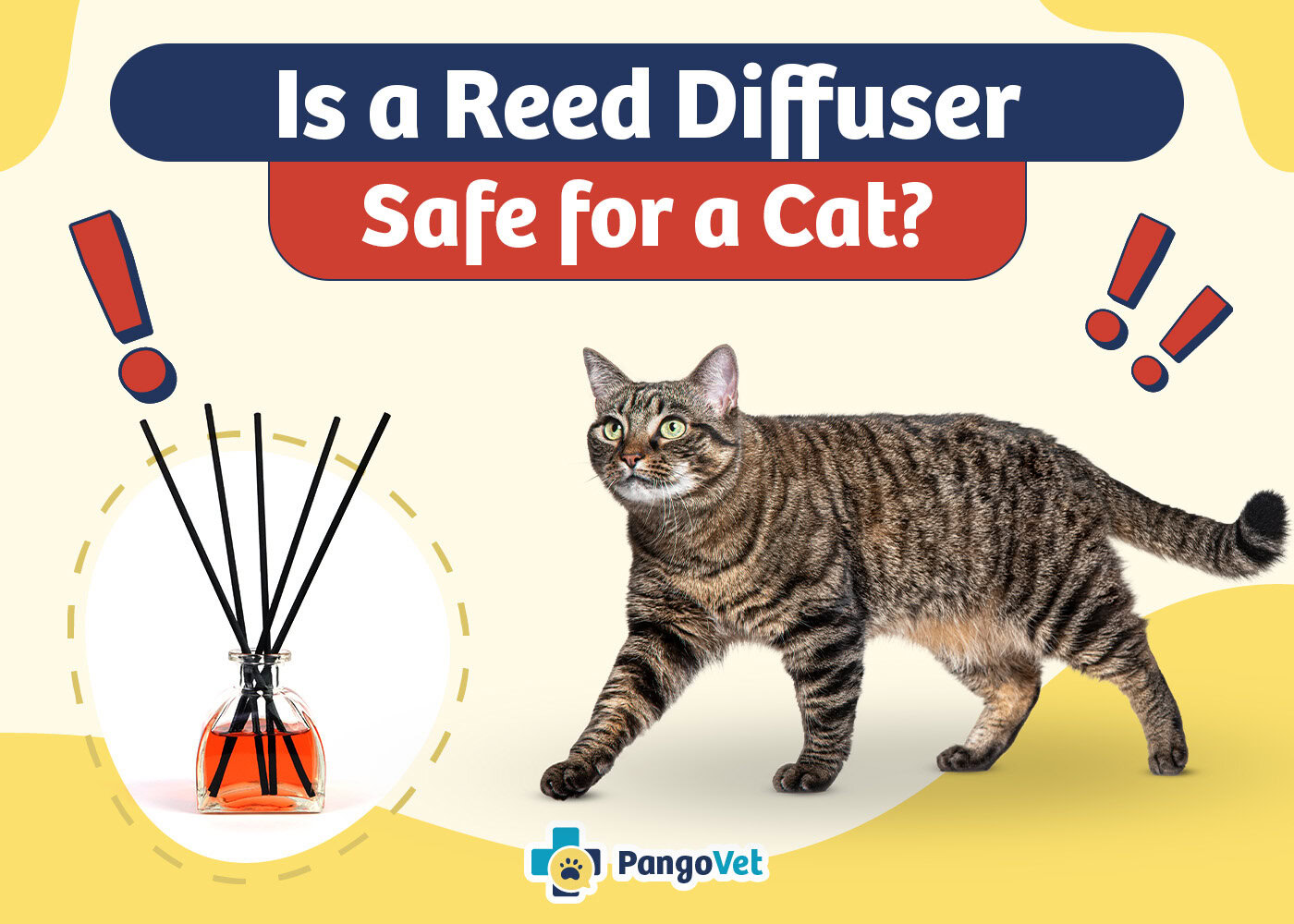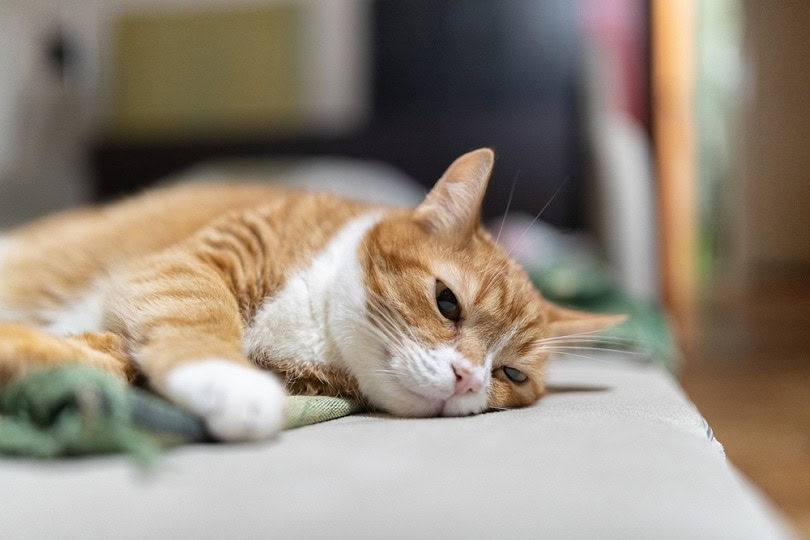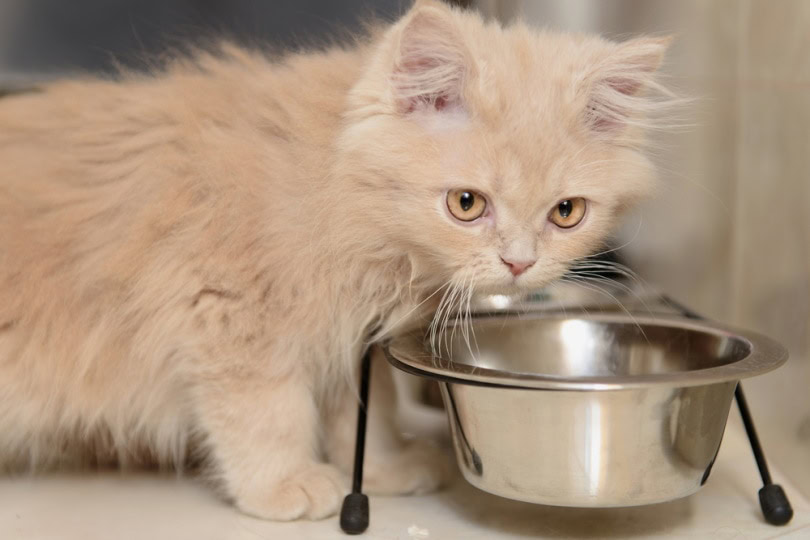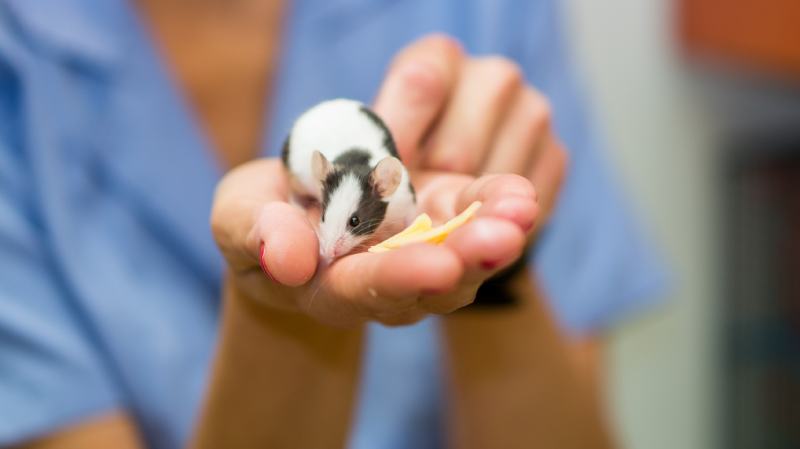VET APPROVED

The information is current and up-to-date in accordance with the latest veterinarian research.
Learn more »Click to Skip Ahead
There’s nothing better than a clean, fresh-smelling home, and instead of relying on aerosol fragrances, some homeowners use reed diffusers. However, you may be hesitant to use one if you have a cat. Although the diffuser is not dangerous to cats, the essential oils that it emits can harm them.
So which essential oils can you use, and which ones are dangerous? We’ll answer those questions and more, so you can keep your feline safe.

What Is a Reed Diffuser?
A reed diffuser is a glass container filled with essential oils, alcohol, water, and reeds sticking out of the top of the glass container. You add the essential oils, water, and a few reeds in the container, along with a little alcohol, to keep your reeds from rotting away.
The reeds soak up the essential oils and water, then send it wafting throughout your house. You can find reed diffuser kits just about anywhere, or you can buy everything separately to customize your container to match your décor.
Many people create DIY reed diffusers by using glass bottles in the house and adding their favorite essential oils to the mix.
How Is a Reed Diffuser Dangerous to Your Cat?
The reed diffuser itself isn’t dangerous to your cat unless it breaks it and ends up being cut by the glass. The essential oils used in the reed diffuser can be toxic to your feline pal in different ways depending on how they come into contact with them. Your cat lacks certain liver enzymes needed to metabolize some of the compounds found in essential oils if they are ingested. Some essential oils can also burn or irritate their skin or mouth if they come into direct contact with them and cats can have issues from even inhaling essential oils.
If you decide that you want to use a reed diffuser, it’s best to keep it up out of your cat’s reach, so it can’t knock it over and get hurt by it. You must also ensure you’re using an essential oil that is not on the list of essential oils known to be toxic to cats. Cats are inquisitive and it is just not worth the risk.

Essential Oils That Are Dangerous for Your Cat
If you’re in a closed-off room that your cat cannot access, you may be able to use any essential oil without harming your cat. However, cats with asthma, allergies, or other respiratory issues shouldn’t be around any essential oils at all. Most essential oils can be toxic to cats but there are some that can be particularly dangerous and we suggest avoiding them entirely. These oils include:
- Wintergreen
- Ylang ylang
- Pennyroyal
- Eucalyptus
- Tea tree
- Peppermint
- Citrus
- Clove
- Pine
- Cinnamon
If your cat ingests one of the toxic essential oils, they can show signs such as drooling, difficulty breathing, muscle tremors, incoordination, and red gums. Some essential oils are harmful with only a few licks or skin contact with a small amount. So, if you believe your cat has ingested or come into contact with essential oils, then you must contact a veterinarian or emergency clinic immediately.

Conclusion
If you decide to use a reed diffuser in your home around your cat, we recommend keeping it on a high shelf or location your cat cannot access since it’s made of glass. However, you have to be careful which essential oils you use in that reed diffuser if you want to protect your feline.
We’ve listed some of the particularly dangerous essential oils to be avoided. However, especially if you have a particularly inquisitive kitty or one with respiratory issues, it may be best to avoid all reed diffusers to be on the safe side.
Featured Image Credit: Aquarius Studio, Shutterstock












